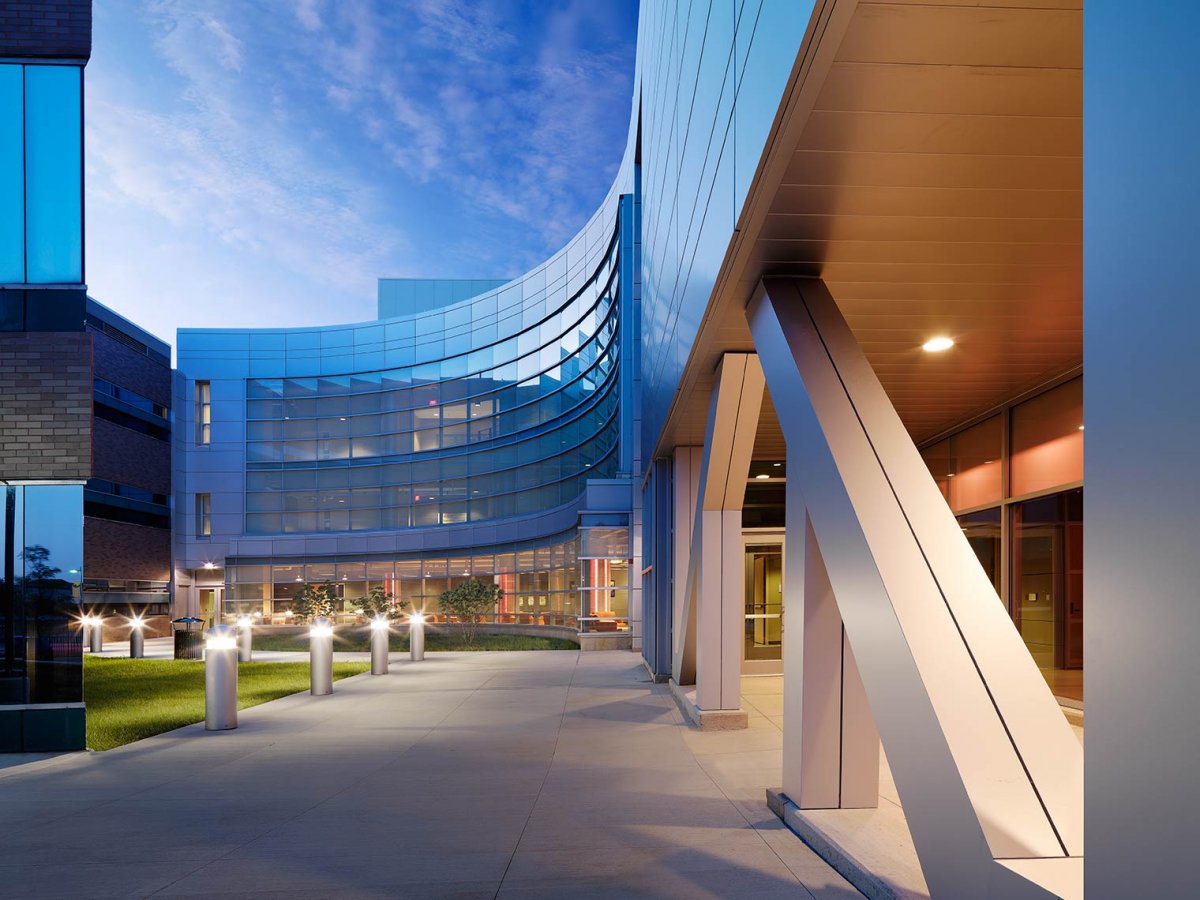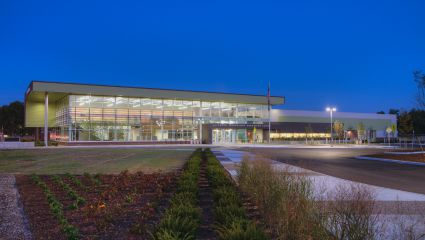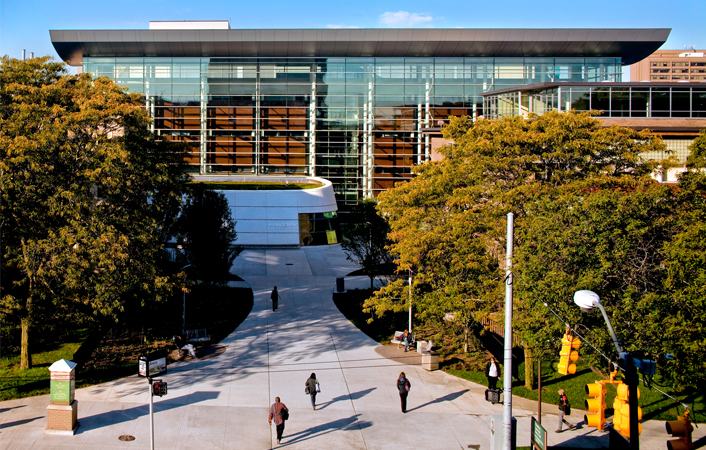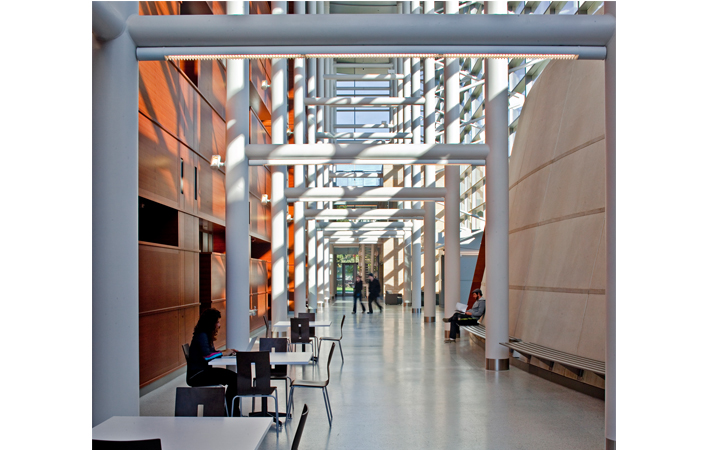Innovations
Leadership in Energy and Environmental Design (LEED) Buildings
Wayne State University continues to add to its portfolio of LEED buildings with the recent additions of the Advanced Technology Education Center (LEED Gold) and A. Paul Schaap Chemistry Building (LEED Silver). In 2012, the Marvin I. Danto Engineering Development Center was awarded LEED; Silver certification; by the US Green Building Council (USGBC) making it the first building on the WSU campus to receive the honor. In 2013, the Mazurek Medical Education Commons was WSU's second building to receive LEED Silver certification. LEED certification is gained by meeting environmental benchmarks in energy, water, materials and resources, indoor environmental quality, and site development. All major construction projects at WSU are designed to receive a level of LEED certification.



Heat Island effect
 The Facilities, Planning and Management (FP&M) team designed and constructed pedestrian walking surfaces that incorporate highly reflective paving integrated with exposed aggregate accents. Large flower trees lined the main entry to further shade walks, to help minimize what is referred to as the heat island effect or elevated surface temperatures in developed urban areas.
The Facilities, Planning and Management (FP&M) team designed and constructed pedestrian walking surfaces that incorporate highly reflective paving integrated with exposed aggregate accents. Large flower trees lined the main entry to further shade walks, to help minimize what is referred to as the heat island effect or elevated surface temperatures in developed urban areas.
Low Emitting Materials
 Interior construction materials are an integral part of the indoor air environment. FPM's project teams specify that new construction materials (i.e. paint, sealants, adhesives and carpet) contain little to no Volatile Organic Compounds (VOCs). Limiting the levels of VOC's in new construction provides cleaner environments for building users.
Interior construction materials are an integral part of the indoor air environment. FPM's project teams specify that new construction materials (i.e. paint, sealants, adhesives and carpet) contain little to no Volatile Organic Compounds (VOCs). Limiting the levels of VOC's in new construction provides cleaner environments for building users.
